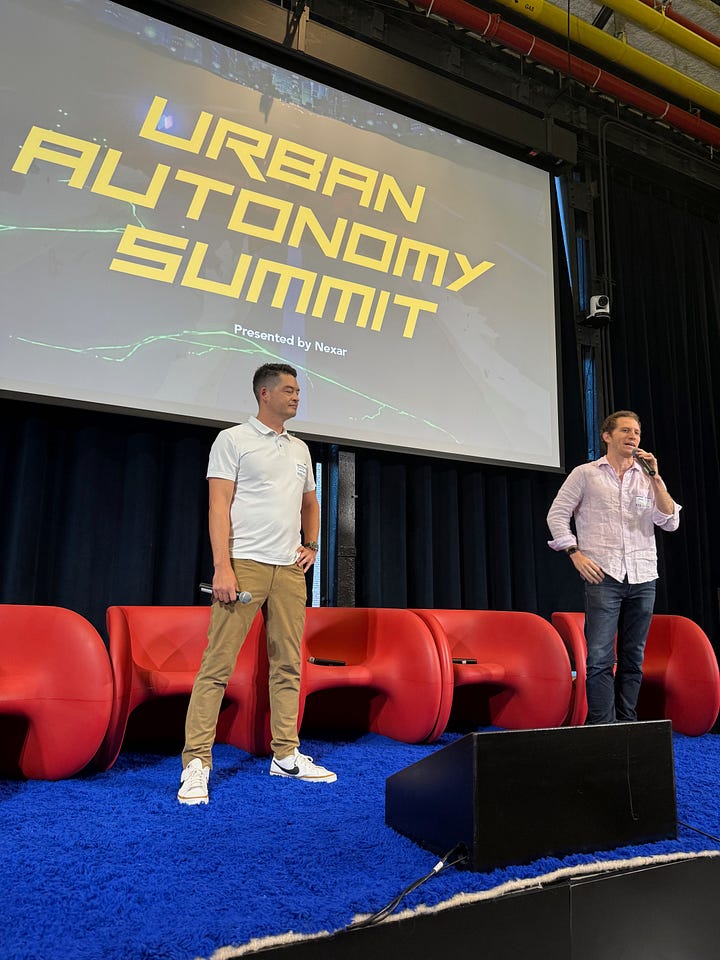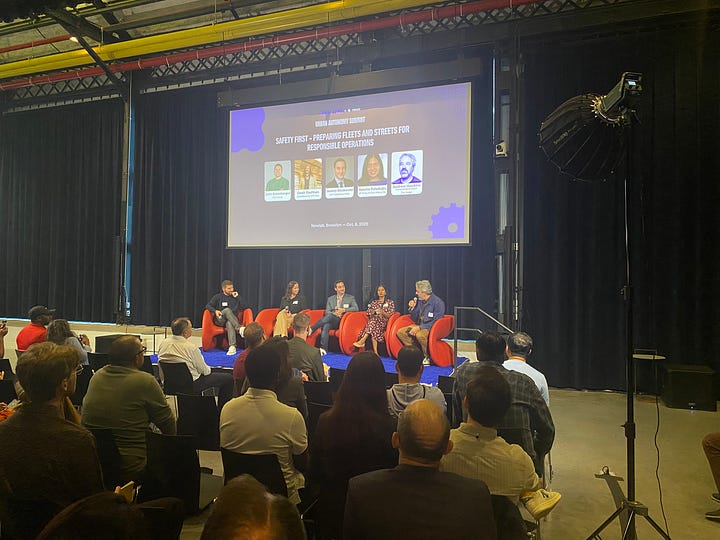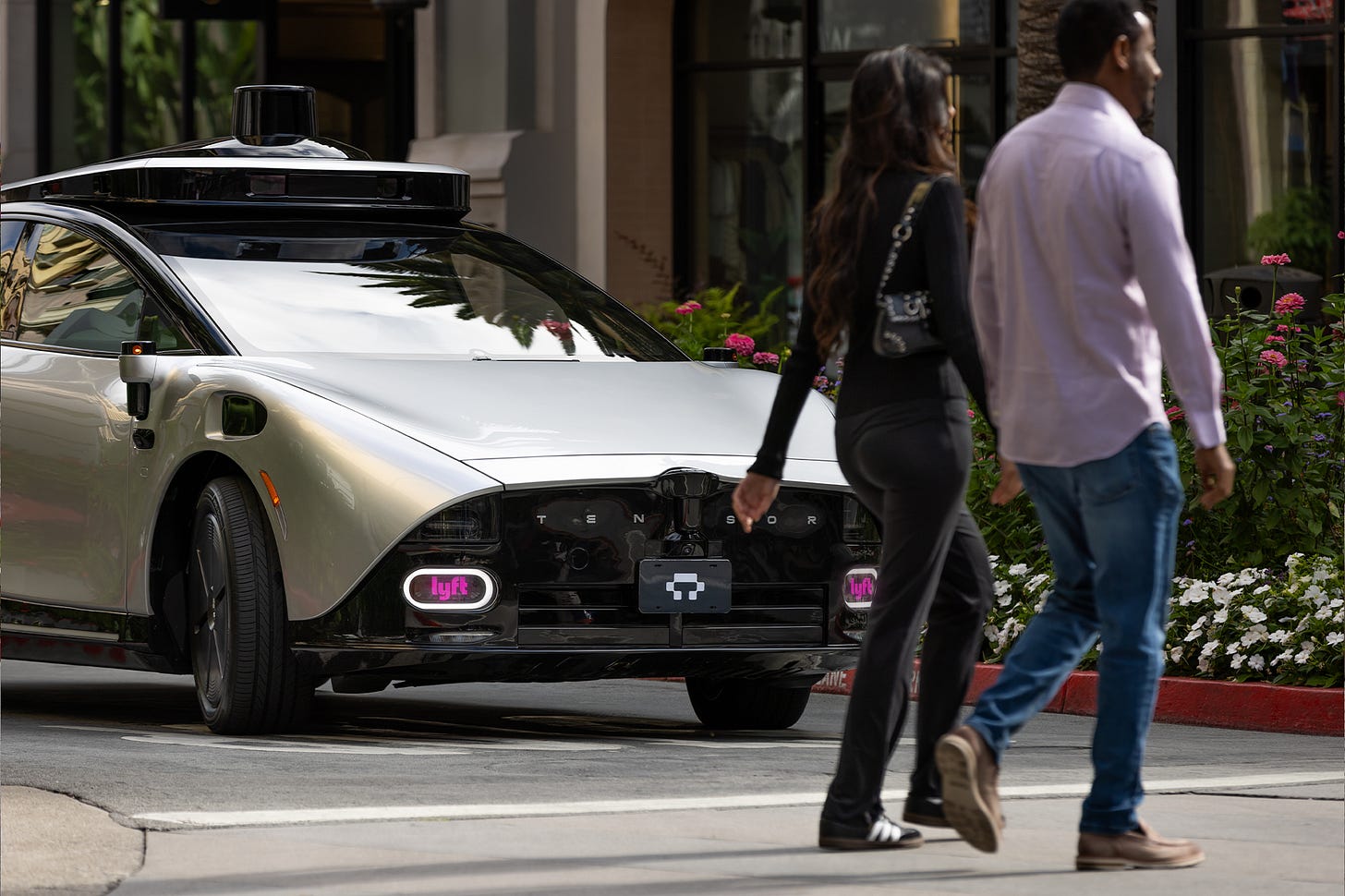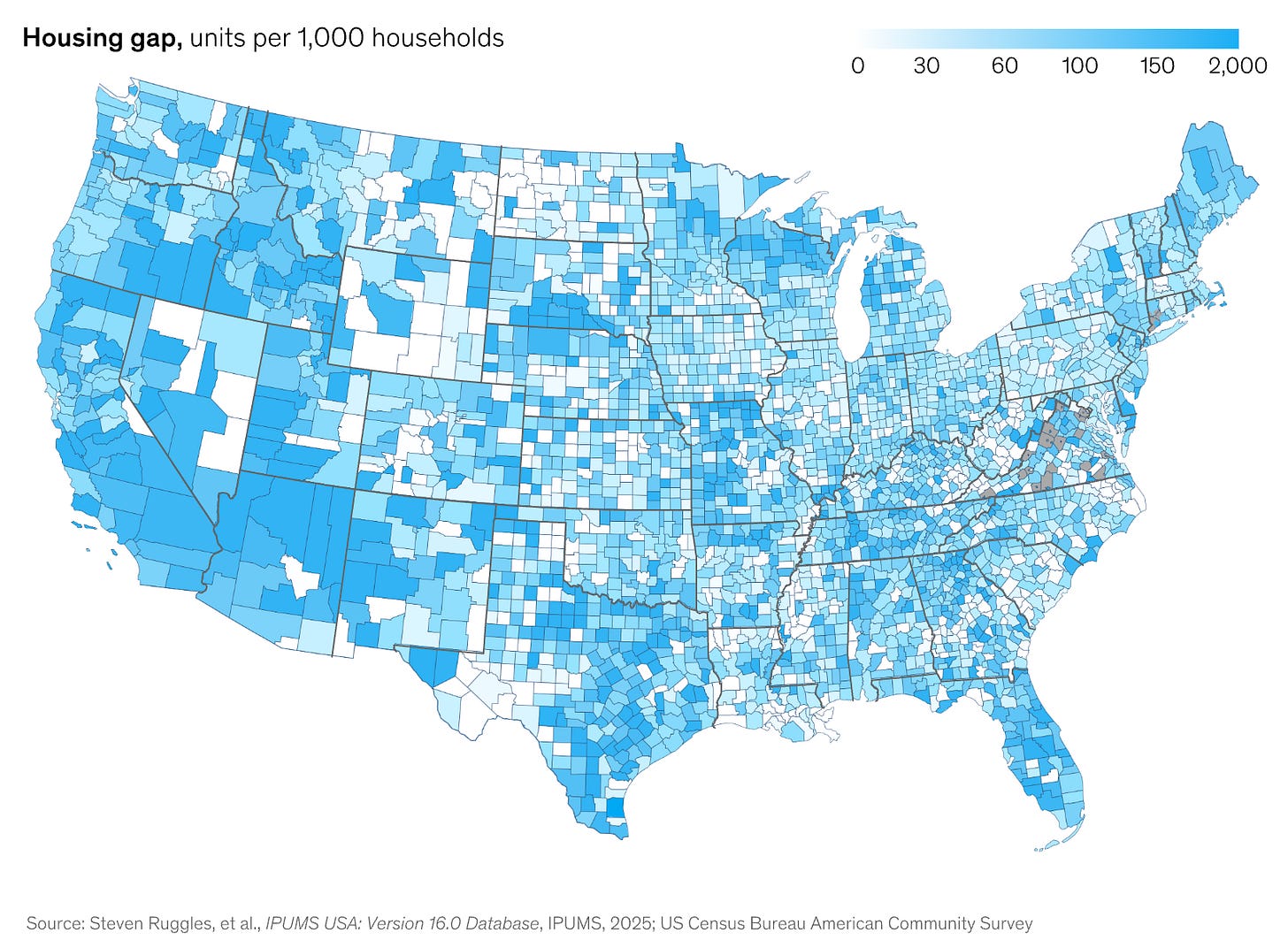Would You Share Your (Self-Driving) Car?
No houses for nobody, EV rebates, Miami transit progress
Before getting to today’s news, I’d like to thank everyone that came out last night to our inaugural Urban Autonomy Summit. Give a round of applause to our great partners at Nexar, L-Charge, Gridwise and Obi, plus all the amazing speakers and participants from the likes of Waymo, Uber, Nuro, Lyft, DoorDash, Bot Auto, Maniv, Morgan Stanley, Bloomberg, Via, Benteler, The Verge, IATR, TLC, DOT and the 200+ folks that joined us at Newlab!


AVs are obviously still top of mind… with Lyft announcing a new partnership with Tensor. For those that don’t recall the later co., it recently spun out of Chinese AV player AutoX, with plans to sell an L4 “personal robocar” contract manufactured by VinFast. Now the deal with Lyft means that while Joe Schmo might own his own AV, he can put it to work on the Lyft network, letting it pick up passengers while collecting fares when he’s not using it for personal trips.
It’s a seemingly intuitive concept at first glance, similar to Tesla’s original robotaxi pitch, or really what we were building at Turo a good 15 years ago (minus the autonomy part.) The story goes: people already own plenty of cars, they sit unused ninety-something percent of the time, these owners can handle the maintenance and storage… why not up the utilization of these pricy assets?
And yet, as we’ve seen time and time again, it doesn’t really work out that way. Most people want to return to their car the way they left it, not with the mirrors and seats in a different position or a mysterious scratch or wet spot (eww.) And then there are the economies of scale you get from managing a fleet — even if you’re not quite at Enterprise or Hertz or Holman scale — you can do your repairs in-house, you can negotiate better rates for everything from insurance to windshield wiper juice, you can ensure there’s always someone there to check in on a returned car, etc. And of course the AV space adds in all sorts of new questions about liability that aren’t yet fully sorted out, as the NHTSA’s new investigation into Tesla FSD hammers home.
If you click on any average vehicle listed on Turo, you’ll find that its “host” actually owns a small fleet of vehicles. So much for our founding idea that grandma would simply loan out her underutilized Prius on the weekends! And we’ve seen this in the TNC space too, where many Uber and Lyft drivers now rent from (or work for) fleet operators who know how to keep those workhorse vehicles up and running all day long.
Even the AV space seems to have already acknowledged this phenomenon, with specialty groups like Moove popping up to actually own the hardware, so Waymo and its ilk don’t have to worry about keeping these messy, depreciating assets on their books. If these Tensors ever make it to market, I wouldn’t be surprised if they eventually ended up owned by a fleet operator specializing in distressed assets of sorts, as we saw with all those Fisker Oceans.
JOIN US IN LA FOR TWO TECH WEEK EVENTS
The Curbivore Crew is back in Los Angeles, for two amazing LA Tech Weeks event.
Join us on Tuesday evening in Santa Monica for Autonomy, and the Future of Delivery Mixer, brought to you by Coco Robotics, featuring a mixer and lively panel discussion featuring George O’Brien - VP Product at Coco, Bolei Zhou - Professor at UCLA Computer Science, and Amit Gupta - Partner at SNR Ventures.
Then on Wednesday evening, we’re in Culver City for Deeptech After Dark, brought to you by AVL. Join us for great drinks and deep conversations about all things automotive, aerospace, energy, cleantech, and mobility. See you there!
HOT INDUSTRY NEWS & GOSSIP
Parking problems (and solutions): Faced with a budget crunch, the City of LA is upping its parking meter rates, and ending free parking on Sundays, with the changes expected to bring in $14.4 million annually. Why does the city have to wait until there’s a crisis to optimize parking prices, and why does this even require a vote by the full city council?!
What if an entire country forgot how to build? Forget the big cities, new data shows that basically he entire country has a housing shortage. By 2035, the deficit is expected to hit 9.6 million units.
Mile high rebates: With Federal EV incentives now evaporated, most states are choosing not to backfill those missing subsidy dollars. Colorado is taking the opposite approach, upping its state rebate for new electric cars to $9,000 from $6,000, and for used ones to $6,000 from $4,000. How about $9k off an electric bike?
Microtransit, microimpact? New research into microtransit confirms most skeptics’ fears: it doesn’t raise ridership and it generally costs more than traditional fixed route service. On the positive side, it can be more reliable than a very infrequent bus route, but that’s a pretty low bar…
Good news in Miami: Miami-Date County has okayed funding to launch a commuter rail service that uses Brightline’s route, better serving the denser communities on the county’s northeastern side. Meanwhile, Brightline itself will get a bit safer, thanks to $42M in new federal funding for new safety devices at grade crossings. And the county is just about to open its new BRT route, upgrading stations and service along the old South Dade TransitWay. (Dorky note: the bus corridor looks to offer both an express and local service, which sounds nice on paper. But the service frequency is too poor to make it worthwhile… the express busses come too infrequently to make it worth waiting for one, you’re better off hopping on a local even though it spends a few more minutes waiting at additional stations.) Meanwhile, state leaders are of course threatening to blow up all this progress by cutting back on funding.
Bad news in Houston: Houston’s newish mayor has made a name for himself as particularly anti-transit, in stark contrast to previous mayor Sylvester Turner. Now he’s made the city turn off traffic signal priority for the local light rail system, subjecting riders to about 10 minutes in additional delays per trip.
“Downtown Brooklyn Is One Big Illegal Parking Lot” - so says Hell Gate, in response to a new study on the matter. “On an average weekday, there are 457 illegally parked vehicles in Downtown Brooklyn. 186 of these vehicles (41%) have official parking placards, but are still parked illegally, such as on sidewalks or in no standing zones. An additional 74 (16%) have fake placards, including City agency gear or vests on the dashboard. 185 (41%) of illegally parked cars are without a real or fake placard. Only 3% of observed illegally parked cars had been issued a ticket, so 97% of illegal vehicles faced no fine or accountability. Notably, whether cars are in no standing/stopping zones, illegally abusing placards to park on sidewalks, or using fake placards—the majority of offenders are government workers or contractors.”
Panopticash! SF’s new traffic enforcement camera system is already having a positive impact, with one intersection seeing a 92% reduction in speeding. In August, the 56 cameras caught 16,000 speeders, which could translate to $1M in new revenue.
The voters want transit: Somehow it’s election season once again (I suppose let’s be grateful while we still have them…) Across the country, measures looking to boost funding for transit seem to be polling well. Prospective voters across the Kansa City region look poised to support a sales tax to improve bus service, while voters will soon weigh in on a new road, rail and bus package in greater Charlotte.
TSA for your burrito? Retailers and drone startups are worried about a potential law on drone operations that would require TSA-like security screening for stores, employees and maybe even customers. So much for “unleashing American drone dominance!”
Everything is political, even if it’s not that curb-y… With the government shutdown dragging on, numerous air traffic control towers are now operating without staff. So far it’s just leading to delays, but one can imagine this quickly escalating. Meanwhile, the Trump Admin is using the shutdown to go after “blue city” projects like Chicago’s Red Line extension. While other shenanigans look to try transit funding to mandating that cities assist with ICE raids.
A very cool research paper: (even if it’s not brand new.) “Infrastructure Inequality: Who Pays the Cost of Road Roughness?”
A few good links: Uber buys data labelling startup Segments.ai. Tricolor auto loan fraud saga deepens. Insurers are moving their funds to the Cayman Islands… hope the cash will actually be there when you need a payout! MTA accuses Amtrak of dragging feet on plan to bring new commuter rail stops to the Bronx. New BRT-ish routes ease London’s inter-suburb commutes (meanwhile Paris is building new subway lines…) ChatGPT learns to order restaurant delivery. Frequent service and lots of TOD means Vancouver’s seen transit ridership come bouncing back, while most American cities languish. Right after announcing a delivery bot of its own, DoorDash teams up with Serve Robotics to offer the latter’s bots on the former’s network, starting in LA.
P.S. That Urban Autonomy Summit was such a hit that I’m thinking about doing another one in SF… hit me up if you’d be interested in participating.
- Jonah Bliss & The Curbivore Crew





